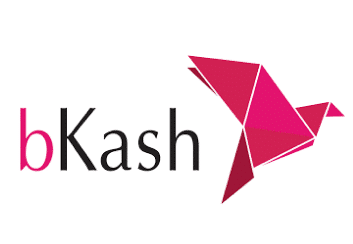-
Email info@proxynix.com
-
Phone +447480673522
Unlocking the Benefits of Residential RDP USA: A Comprehensive Guide

In today’s fast-paced digital world, remote work has become the norm, necessitating reliable and secure access to computing resources from anywhere. One effective solution is Residential RDP USA (Remote Desktop Protocol), which offers users the ability to connect to a remote server as if they were sitting right in front of it. This technology has gained immense popularity, especially among professionals who need to access their workstations securely from different locations
What is Residential RDP?
Residential RDP refers to the use of remote desktop services that are hosted on residential IP addresses. Unlike traditional data center IPs, residential IPs are associated with real residential locations, providing enhanced anonymity and reduced chances of being blocked by websites or services. This makes residential RDP USA an ideal choice for various applications, including:
- Secure remote access for businesses and freelancers.
- Data scraping and web automation.
- Accessing geo-restricted content.
- Running applications that require high bandwidth.
Benefits of Using Residential RDP USA
Using residential RDP in the USA offers several advantages:
1. Enhanced Security
With residential RDP, your IP address is masked, making it difficult for hackers and malicious actors to track your online activities. This is especially important when accessing sensitive information or conducting business transactions.
2. Better Performance
Residential RDP services often provide higher speeds and lower latency compared to standard data center RDP. This is crucial for applications that require real-time data processing and quick response times.
3. Access to Restricted Content
Many online services and platforms restrict access based on geographical locations. By using a residential RDP service, you can easily bypass these geo-restrictions and access content that would otherwise be unavailable in your area.
4. Reliable Connectivity
Residential RDP providers usually offer stable and reliable connections, ensuring that users can work without interruptions. This is vital for maintaining productivity, especially for remote teams.
How Residential RDP Works
Residential RDP works by allowing users to connect to a remote computer over the internet. The user’s device sends input (keyboard and mouse actions) to the remote server, and the server sends back output (display data). This process happens in real-time, creating a seamless experience as if the user were working directly on the remote machine.
Key Features of Residential RDP USA
When selecting a residential RDP service, consider the following features:
1. User-Friendly Interface
A good residential RDP service should have an intuitive interface that allows users to connect and manage their remote sessions easily.
2. Multiple Connection Options
Look for services that offer various connection protocols (such as RDP, VNC, and others) to suit your preferences and needs.
3. Scalability
As your business grows, your remote desktop needs may change. Choose a provider that allows you to easily scale your resources up or down as necessary.
4. Customer Support
Reliable customer support is essential for resolving any issues that may arise. Look for providers with 24/7 support to assist you promptly.
Pricing for Residential RDP USA
Below is a pricing table outlining some of the available plans for residential RDP services offered by Proxy Nix:
| Plan | Price (per month) | Features |
|---|---|---|
| Basic Residential RDP | $29.99 | 1 user, 4GB RAM, 2 CPU cores, 100GB SSD storage, 24/7 support. |
| Standard Residential RDP | $49.99 | 2 users, 8GB RAM, 4 CPU cores, 200GB SSD storage, enhanced security features. |
| Premium Residential RDP | $79.99 | 5 users, 16GB RAM, 8 CPU cores, 500GB SSD storage, priority support. |
| Ultimate Residential RDP | $129.99 | Unlimited users, 32GB RAM, 16 CPU cores, 1TB SSD storage, dedicated IP address. |
Choosing the Best RDP Provider in the USA
When searching for the best RDP provider in the USA, consider the following factors:
1. Reputation and Reliability
Look for providers with positive reviews and a proven track record of reliability. This ensures that you can count on their services for your remote desktop needs.
2. Infrastructure and Data Center Locations
The provider’s infrastructure and the location of their data centers can affect performance. Choose a provider with data centers in the USA for optimal speeds and performance.
3. Pricing and Plans
Evaluate the pricing of various providers to find a plan that fits your budget while offering the necessary features and support.
4. Customer Service
Good customer service is vital. Ensure the provider offers responsive support that can assist you with any issues or questions.
Residential RDP vs. Proxy Services
While both residential RDP and proxy services offer benefits related to online privacy and access, they serve different purposes:
1. Residential RDP
Residential RDP provides a full remote desktop environment, allowing users to access applications, files, and resources on a remote server. This is particularly useful for businesses that require secure access to workstations.
2. Proxy Services
Proxy services act as intermediaries between users and the internet, masking IP addresses and providing anonymity. They are suitable for tasks such as web scraping, accessing geo-restricted content, and maintaining online privacy.
Common Use Cases for Residential RDP USA
Residential RDP services are utilized in various scenarios, including:
1. Remote Work
With the rise of remote work, residential RDP allows employees to access their workstations securely from home or while traveling.
2. Data Scraping
Businesses can use residential RDP to gather data from websites without being blocked, leveraging the anonymity provided by residential IPs.
3. Accessing Geographically Restricted Content
Residential RDP enables users to access content restricted to specific regions, such as streaming services or local websites.
4. Running Resource-Intensive Applications
Users can run demanding applications on remote servers without taxing their local machines, making residential RDP ideal for tasks like video editing or software development.
Security Features of Residential RDP
When choosing a residential RDP service, it’s important to consider the security features offered:
1. Encryption
Look for providers that offer strong encryption protocols to protect data transmitted between the user and the remote server.
2. Multi-Factor Authentication
Multi-factor authentication adds an extra layer of security, requiring users to verify their identity through additional means.
3. Regular Updates
Ensure that the provider regularly updates their software to address security vulnerabilities and improve performance.
Residential RDP USA is a powerful tool that enables users to access remote desktops securely and efficiently. With its numerous benefits, including enhanced security, better performance, and the ability to bypass geo-restrictions, it’s an ideal choice for businesses and individuals alike. By understanding the features and options available, such as those offered by Proxy Nix, users can make informed decisions that best suit their remote desktop needs.
FAQs about Residential RDP USA
1. What is Residential RDP?
Residential RDP allows users to access a remote desktop environment hosted on residential IP addresses, providing enhanced security and privacy.
2. How does Residential RDP differ from traditional RDP?
Residential RDP uses residential IP addresses, making it less detectable and more reliable for accessing geo-restricted content compared to traditional RDP services.
3. Can I use Residential RDP for data scraping?
Yes, Residential RDP is ideal for data scraping as it provides a stable connection and reduces the risk of being blocked by target websites.
4. Is Residential RDP secure?
When provided by reputable companies like Proxy Nix, Residential RDP services typically include security features such as encryption and multi-factor authentication to protect user data.
5. How do I choose the best Residential RDP provider?
Consider factors such as reputation, infrastructure, customer support, and pricing when selecting the best provider for your needs.
6. What are the pricing options for Residential RDP?
Pricing for Residential RDP varies depending on the provider and plan, with options ranging from basic to premium packages that cater to different user requirements.
Understanding the Advantages of Residential RDP USA
The shift towards remote work and online operations has led to an increased demand for secure and efficient remote access solutions. One such solution that stands out is residential RDP USA (Remote Desktop Protocol), which allows users to connect to their remote machines using residential IP addresses. This technology is especially useful for various professional and personal applications, making it an essential tool in today’s digital landscape.
What Exactly is Residential RDP?
Residential RDP refers to remote desktop services that utilize residential IP addresses, which are tied to actual physical locations rather than data centers. This differentiation provides users with various benefits:
- Reduced risk of being flagged by websites.
- Improved access to geo-restricted content.
- Enhanced anonymity, making online activities harder to trace.
By using residential RDP, users can navigate the web as if they were located in a specific region, accessing content and services that are typically unavailable outside that area.
Why Choose Residential RDP USA?
Choosing a residential RDP service in the USA can provide several advantages for both individuals and businesses. Here are some of the key reasons why you might consider this option:
1. Access to Local Content
Many websites and services restrict access based on geographic location. By utilizing a residential RDP USA, users can bypass these geo-restrictions, gaining access to local content, streaming services, and other region-specific resources.
2. Enhanced Privacy and Security
Residential RDP masks your actual IP address, making it significantly harder for malicious entities to track your online activities. This added layer of security is essential for anyone conducting sensitive business transactions or accessing confidential information.
3. Flexibility and Convenience
Residential RDP offers the flexibility to work from anywhere in the world while maintaining a secure connection to your remote desktop. This convenience is particularly beneficial for professionals who travel frequently or those who prefer working from home.
Comparative Analysis: Residential RDP vs. Other Services
While residential RDP provides unique benefits, it is essential to compare it with other available services:
1. Standard RDP Services
Traditional RDP services typically use data center IPs, which can often be flagged or blocked by target websites. While they can offer high speeds, they may lack the security and anonymity provided by residential RDP solutions.
2. VPN Services
VPNs provide a secure connection for internet traffic but do not offer the full desktop experience of RDP. VPNs are excellent for general browsing and accessing geo-restricted content but lack the full functionality of remote desktop access.
3. Virtual Private Servers (VPS)
VPS solutions provide users with their own virtual server environments, which can be more complex to manage compared to residential RDP. While VPS offers more control, it also requires technical knowledge that may not be suitable for all users.
Security Considerations for Residential RDP USA
Security is a primary concern when using remote desktop services. Here are some important considerations for ensuring a secure experience with residential RDP:
1. Strong Password Policies
Using strong, unique passwords for your RDP accounts is critical. Ensure that your passwords contain a mix of letters, numbers, and special characters to enhance security.
2. Regular Monitoring and Auditing
Many residential RDP providers offer logging features that allow you to monitor login attempts and user activity. Regularly reviewing these logs can help you identify any unauthorized access or suspicious behavior.
3. Software Updates
Keep your remote desktop software and any associated applications up to date. Regular updates help protect against vulnerabilities and improve overall security.
4. Multi-Factor Authentication
Where available, enable multi-factor authentication (MFA) for an additional layer of security. MFA requires users to provide two or more verification factors, making it significantly harder for unauthorized individuals to gain access.
Common Use Cases for Residential RDP USA
Residential RDP is versatile and can be used in various contexts. Here are some common use cases:
1. Business Operations
Many businesses use residential RDP to enable employees to access company resources securely from remote locations. This flexibility allows teams to remain productive while working from home or while traveling.
2. Academic Research
Students and researchers often require access to specific databases and online resources that may be geographically restricted. Residential RDP provides a way to access these resources securely.
3. E-Commerce
For e-commerce businesses, residential RDP can facilitate product research and competitive analysis without risking being blocked or flagged by competitor websites.
4. Social Media Management
Social media managers can utilize residential RDP to manage multiple accounts without drawing attention to their activities. This helps maintain privacy and security while handling various client accounts.
Advantages of Using Proxy Services with Residential RDP
While residential RDP provides substantial benefits on its own, combining it with proxy services can enhance your online experience even further:
1. Increased Anonymity
By using proxies alongside residential RDP, users can achieve an additional layer of anonymity. This combination is particularly valuable for tasks like web scraping, where hiding your IP address is essential.
2. Improved Performance
Some proxy services optimize performance by routing traffic through high-speed connections. This can enhance the overall experience when using residential RDP, especially for bandwidth-intensive tasks.
3. Geo-Specific Access
Combining residential RDP with proxy services allows users to appear as if they are in different geographical locations, further expanding access to content and services that may be region-specific.
Tips for Choosing the Right Residential RDP Provider
When selecting a residential RDP provider, consider the following tips to ensure you make an informed choice:
1. Research Reputation
Look for reviews and testimonials from other users. A provider with a strong reputation for reliability and customer support is typically a safer choice.
2. Evaluate Features
Examine the features offered by different providers. Consider aspects such as connection speeds, server locations, security protocols, and customer support availability.
3. Test Customer Support
Reach out to customer support with questions before committing to a provider. Responsive and knowledgeable support can be a significant factor in your overall experience.
4. Explore Trial Options
Many providers offer trial periods or money-back guarantees. Take advantage of these offers to test the service before making a long-term commitment.
Future Trends in Residential RDP USA
As remote work continues to grow, the demand for residential RDP services is expected to rise. Here are some trends to watch:
1. Advancements in Technology
Technological improvements will likely enhance the performance and security features of residential RDP services, making them even more attractive to users.
2. Increased Focus on Security
With growing concerns about data breaches and cyber threats, residential RDP providers will continue to invest in security features to protect user data and enhance overall safety.
3. Greater Integration with Other Services
We may see more integration between residential RDP and other services, such as VPNs and cloud solutions, creating comprehensive packages that meet a wider range of user needs.
Conclusion
Residential RDP USA represents a powerful solution for individuals and businesses looking to access their remote desktops securely and efficiently. With its unique advantages, such as enhanced security, access to restricted content, and reliable connectivity, it is an ideal choice in the current digital landscape. By understanding its features, potential use cases, and security considerations, users can effectively leverage residential RDP to optimize their remote work experience.
FAQs About Residential RDP USA
1. What is the primary benefit of Residential RDP?
The primary benefit of Residential RDP is enhanced security and anonymity due to the use of residential IP addresses, allowing for safer remote access.
2. How does Residential RDP enhance productivity?
Residential RDP enhances productivity by allowing users to access their workstations securely from anywhere, ensuring that they can work effectively regardless of location.
3. Are there limitations to using Residential RDP?
While Residential RDP is powerful, it can be affected by connection quality and potential throttling by ISPs. However, reputable providers typically mitigate these issues.
4. Can Residential RDP be used for
Interested to
Get Featured Service
- [email protected]
- +447480673522
- Unit 13 Freeland Park Wareham Road
- Mon-Sat 10.00pm - 7.00pm
Our Services
Residential Proxies
Company & Legal
- Privacy Policy
- Refund Policy
- About Us
- Terms of service
- Contact Us
We Accepted








-
© 2024 Proxy Nix - All rights reserved. Developed by webkamrul

